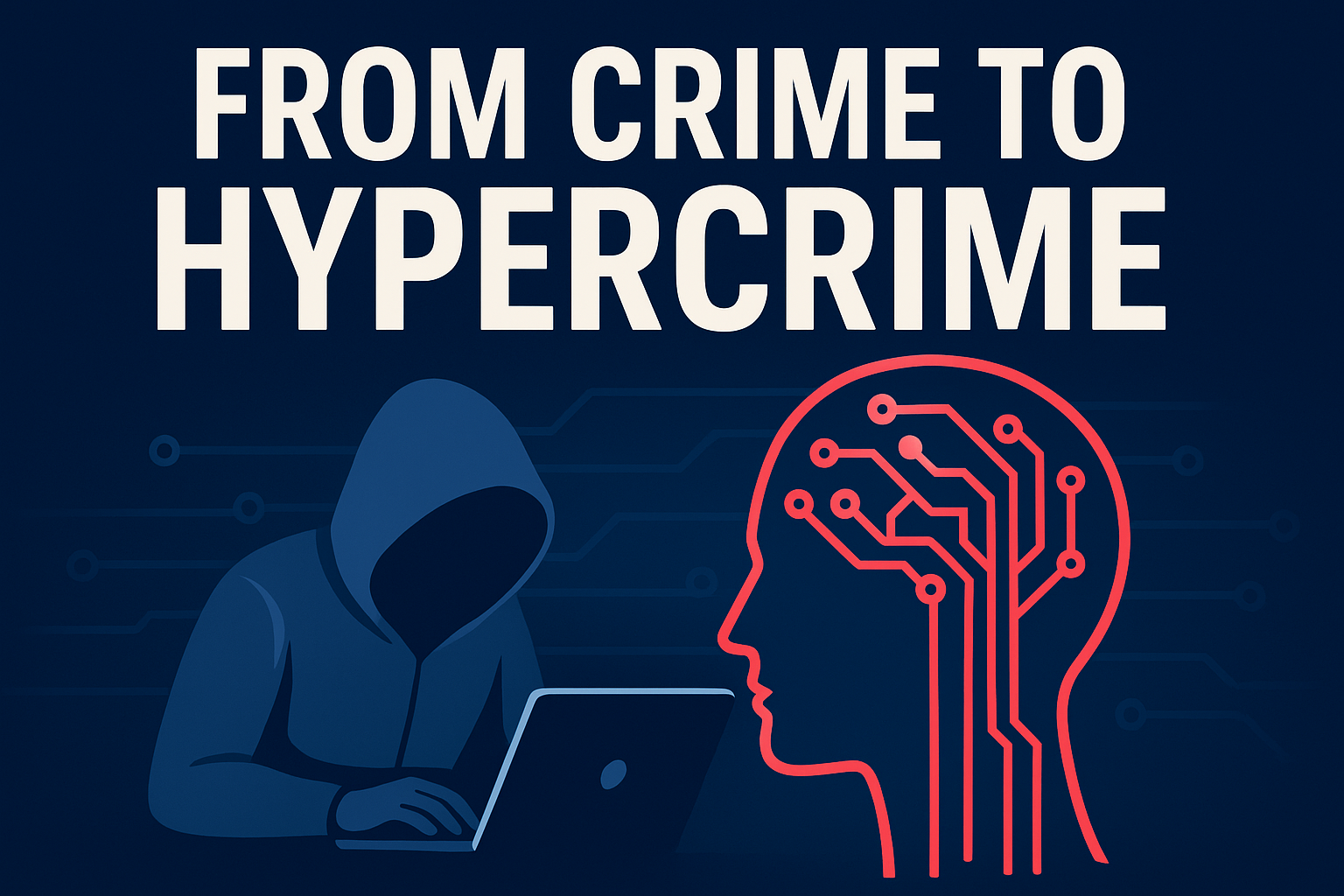“From Crime to Hypercrime: The New Frontier of Criminal Behavior
Table of Contents
From Crime to Hypercrime is not just a buzzword — it’s the reality of how artificial intelligence (AI) is transforming the legal landscape in 2025. Traditional crimes like fraud, theft, and harassment are evolving into AI-powered hypercrimes that are faster, harder to detect, and capable of reaching across borders in seconds.
For criminal defense lawyers in the United States, this shift is critical. Prosecutors are now pushing cases where AI tools are central to the alleged offense, leaving defendants at risk of being unfairly charged or misunderstood. Understanding this transition is the first step to protecting your rights.
What Does “From Crime to Hypercrime” Mean?
The phrase From Crime to Hypercrime describes how ordinary crimes are enhanced by AI:
- Speed: AI can automate actions like phishing emails or hacking attempts at massive scale.
- Reach: Crimes no longer stop at state lines — one AI tool can hit thousands of victims worldwide.
- Anonymity: AI hides identities, making it harder for law enforcement to trace suspects.
Example: Instead of one person committing identity theft by hand, an AI bot can steal thousands of identities in minutes. That’s hypercrime.

Why the Shift Matters for Defendants
For individuals accused under this new landscape, the risks are enormous:
- Unfair Association: Simply using an AI tool might trigger suspicion.
- Complex Evidence: Courts often struggle to understand how AI actually works.
- Harsher Penalties: Prosecutors push for tougher sentences, arguing hypercrimes cause “greater harm.”
Imagine being accused because an AI-driven chatbot you used was flagged as part of a cyberattack. Without the right defense, you could face years in prison for something you didn’t directly control.
National Trends in the USA
In 2025, U.S. courts are beginning to see a surge in hypercrime cases. Reports show:
- A 40% increase in AI-driven fraud investigations compared to 2023.
- Cybercrime defense lawyers in New York, California, and Florida are seeing rising caseloads.
- Federal agencies are lobbying for new AI-specific criminal statutes.
This means more people will face charges tied to AI tools — even if they didn’t knowingly commit a crime.

How Criminal Defense Lawyers Fight Hypercrime Charges
If you’re accused of hypercrime, a strong defense can mean the difference between freedom and conviction. Lawyers may use strategies such as:
- Challenging AI Evidence: Was the data reliable? Was the AI biased?
- Proving Lack of Intent: AI may act without your control — intent is crucial in criminal law.
- Highlighting Technical Gaps: Judges and juries may not fully grasp how AI works.
In fact, one recent case in Texas showed how defense lawyers successfully argued that an AI-generated “deepfake” could not be pinned on the defendant without direct evidence.
From Crime to Hypercrime: What This Means for You
From Crime to Hypercrime signals a warning: anyone using technology could be at risk of being swept into a hypercrime accusation. But it also means there is room for strong defense. Criminal defense lawyers who understand AI can:
- Protect your rights.
- Challenge unfair charges.
- Expose weaknesses in prosecution evidence.
If you’ve been accused of an AI-related offense, the worst mistake is to assume it’s “too technical to fight.” With the right defense strategy, you can challenge even the most complex allegations.
Live Example
In 2024, a college student in California was accused of using AI to create fake job applications that led to identity fraud. Prosecutors charged him with felony fraud under new cybercrime enhancements. His lawyer successfully argued that the AI program acted beyond his intent, reducing the charges to a misdemeanor. This case shows how understanding AI’s role can change the outcome.
Video Insight
[YouTube Video: How AI Is Changing Criminal Defense in 2025]
(Embed a relevant YouTube video on AI & criminal defense for engagement.)
Conclusion
From Crime to Hypercrime marks a turning point in U.S. criminal law. AI doesn’t just change how crimes are committed — it changes how they’re prosecuted and defended. For defendants, that means higher stakes, but also new opportunities for strong legal defenses.
If you or someone you know is facing AI-related hypercrime charges, don’t wait. Contact an experienced criminal defense lawyer who understands both the law and the technology. The future of your freedom may depend on it.


Leave a Reply